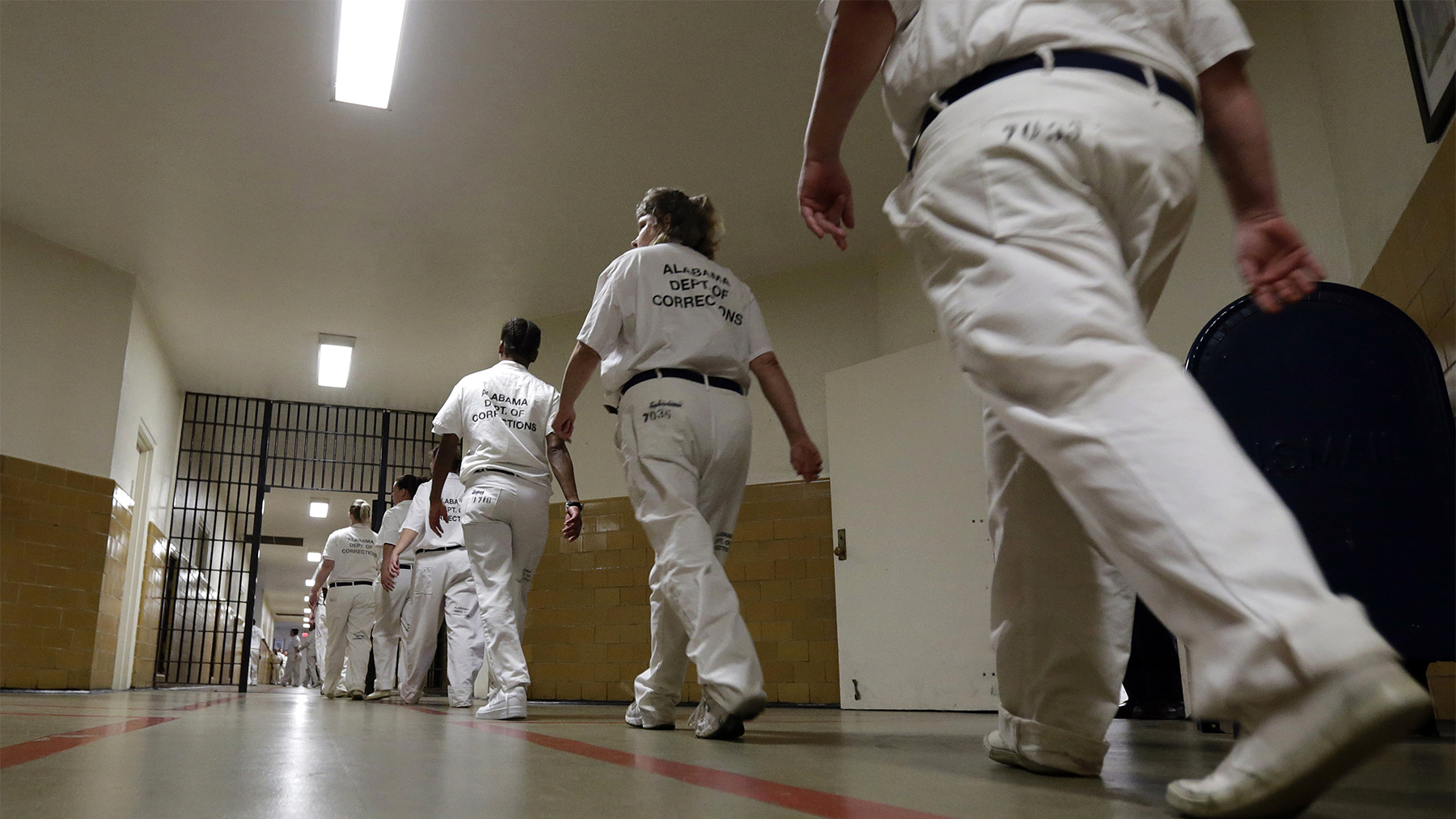We’ve been locked in a legal battle with the state of Alabama for the past five years over the sickening mistreatment of people in its prisons who have medical and mental health needs.
It’s a prison system in crisis – the result of decades of harsh sentencing practices coupled with a lack of will on the part of lawmakers to pay the costs of maintaining this highly destructive system of mass incarceration.
Now, the U.S. Department of Justice (DOJ) has indicated it might sue the state, as well, charging that conditions in its prisons – which are at 160 percent of their capacity – violate the Eighth Amendment’s prohibition against “cruel and unusual punishments.”
On April 3, the DOJ released a blistering 56-report based on its own two-and-a-half year investigation, which was begun during the Obama administration. The findings “shock the conscience,” The New York Times wrote in an editorial.
The DOJ describes the system as plagued by “rampant violence,” “unchecked extortion,” and “severe and widespread sexual abuse” – something we’ve known all along. Prisoners are, in fact, subjected to “a high level of violence that is too common, cruel, of an unusual nature, and pervasive.”
The DOJ found “hundreds of grave injuries to prisoners that were inflicted out of the sight of ADOC correctional officers,” and reviewed more than 600 recent sexual assault incident reports. One warden told investigators that staffing levels are “barbaric” and that “both prisoners and correctional officers in Alabama’s prisons are in extreme danger.” One person, for example, was tied up and strangled to death. Others died as the result of stabbings, beatings, and the ingestion of toxic synthetic drugs.
The system is considered to be the deadliest in the nation, with a homicide rate more than 600 percent greater than the national average from 2001 to 2014; “people are being murdered on a regular basis.” Correctional officers not only fail to protect prisoners from threats of violence from other prisoners, they commonly perpetuate it themselves – illegally stripping and beating prisoners while they are handcuffed and shackled.
It should come as no surprise that the system is plagued by an epidemic of suicides and drug overdoses.
“The Department of Justice’s findings letter describes an enormous breadth of violent conditions in Alabama prisons that amount to nothing less than torture,” said Ebony Howard, an SPLC senior supervising attorney who works on our prison case.
Our case describes a medical and mental health care system that endangers lives and causes untold suffering through its denial of essential medical care.
Serious illnesses and injuries frequently go untreated. Psychiatric medication is often stopped or changed without any discussion between psychiatrist and patient. Numerous prisoners have been placed under “Do Not Resuscitate” or “Allow Natural Death” orders without their consent or even their knowledge. Blind prisoners are routinely asked to sign documents they can’t read. And people with mental illness are sometimes simply locked away in solitary confinement with little or no treatment.
Alabama Governor Kay Ivey and the Alabama Department of Corrections (ADOC) have stood by and allowed these atrocities to worsen. They recently proposed a patchwork of solutions to address the crisis. But the DOJ and current ADOC employees have expressed concern that sparse funding and insufficient efforts from public officials won’t help. “Until major fundamental changes take place in our sentencing and housing of these men it will only continue to get worse,” wrote one correctional officer. “I can’t help but wonder if the public knows just how bad these men are treated day after day and year after year.”
The state has yet to come up with an acceptable remedy to address what the federal judge in our case wrote was “horrendously inadequate” mental health care.
In response to the DOJ’s findings, we sent a letter to Governor Ivey and ADOC Commissioner Jeff Dunn with a proposal to address this crisis. Our recommendations include strategic prison construction incorporating essential medical and mental health facilities, a large increase in staff, and sentencing and parole reform to reduce the incarcerated population.
A criminal conviction does not open the door for the state to engage in cruelty and to rob a person of basic human dignity. Whenever Alabama determines a person must be incarcerated, it must accept the legal – and moral – responsibility.
We’ve been fighting to protect the rights of the incarcerated community for almost 50 years, both through advocacy initiatives and in the courts. And we will continue to fight for justice and to hold the ADOC accountable for the well-being and safety of the people in its care.
SPLC’s Weekend Reads are a weekly summary of the most important reporting and commentary from around the country on civil rights, economic and racial inequity, and hate and extremism. Sign up to receive Weekend Reads every Saturday morning.



